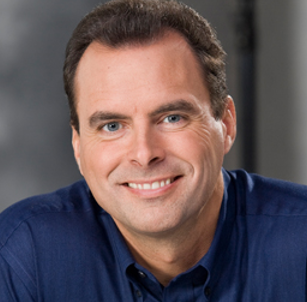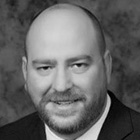In this first installment of the quarterly Catalyst Insights Financial Advisor roundtable, Michael Schoonover, Chief Operating Officer of Catalyst Capital Advisors LLC and Rational Advisors, Inc. and Portfolio Manager of a share buyback strategy fund at Catalyst Funds, asked leading advisors to provide their unique perspective on some of the key issues and challenges facing FAs and their clients as we head into 2020.
Question 1: What are some of the key issues and challenges that Financial Advisors need to address with their clients in 2020?
 Lance Roberts: The biggest issues in 2020 will come around fears about the outcome of the U.S. Presidential election, the economy (recession?), and, ultimately the stock market. With valuations extended, along with underlying price dynamics, and crowding in fewer winning trades, the risk of a big volatility pickup has risen markedly. The other “shoe to drop” is credit risk particularly in the BBB to CCC space. There is a lot of credit on the verge of downgrade into junk status, which will have a significant impact to mutual and pension funds.
Lance Roberts: The biggest issues in 2020 will come around fears about the outcome of the U.S. Presidential election, the economy (recession?), and, ultimately the stock market. With valuations extended, along with underlying price dynamics, and crowding in fewer winning trades, the risk of a big volatility pickup has risen markedly. The other “shoe to drop” is credit risk particularly in the BBB to CCC space. There is a lot of credit on the verge of downgrade into junk status, which will have a significant impact to mutual and pension funds.
Lastly, the risk to pension funds is the $6 trillion bailout no one wants to talk about. If the market does indeed crack, due to either a recession or credit risk event, the damage to pension funds will likely be significant enough to require another bailout from the Government. For pensioners, this has substantial ramifications but also will damage asset markets as well.
 Gregory Wendt: The key issues include the growing interest in impact investing and Environmental, Social, and Governance (ESG) and the differentiation between financial products, which are managed ethically and those which are simply “window dressing” to achieve the goals of the investor for systemic change. I also think that balancing risk and return with potential volatility in the low yield environment for fixed income markets is another. Lastly, legacy planning with the growing desires of younger generations need for different types of financial products attuned to their concerns and needs is key.
Gregory Wendt: The key issues include the growing interest in impact investing and Environmental, Social, and Governance (ESG) and the differentiation between financial products, which are managed ethically and those which are simply “window dressing” to achieve the goals of the investor for systemic change. I also think that balancing risk and return with potential volatility in the low yield environment for fixed income markets is another. Lastly, legacy planning with the growing desires of younger generations need for different types of financial products attuned to their concerns and needs is key.
 Dwayne Moyers: The U.S. stock market has had one of its best average returns since the end of 2008. The average annual return of the S&P 500 from December 31, 2008 to November 30, 2019 is 14.47%. That said, the market currently trades at 21.03x earnings, whereas its median has averaged 14.80. A market move to the median would be a 29.6% decline.
Dwayne Moyers: The U.S. stock market has had one of its best average returns since the end of 2008. The average annual return of the S&P 500 from December 31, 2008 to November 30, 2019 is 14.47%. That said, the market currently trades at 21.03x earnings, whereas its median has averaged 14.80. A market move to the median would be a 29.6% decline.
Question 2: What are the most pressing current issues in the financial planning industry?
 Lance Roberts: In my opinion, the most pressing changes in the financial planning industry is going to be two things, including: the requirement of the fiduciary rules as they apply to wire-houses; and, the continued suppression in fees which is making planning more of a value add to keep clients as fees are driven lower.
Lance Roberts: In my opinion, the most pressing changes in the financial planning industry is going to be two things, including: the requirement of the fiduciary rules as they apply to wire-houses; and, the continued suppression in fees which is making planning more of a value add to keep clients as fees are driven lower.
 Dwayne Moyers: Advisors should be concerned that clients begin to think they can rely on market returns for their income needs and don’t need an advisor since it’s been a long bull market since 2008, which is a similar environment to the 2000 market pull back. Clients are questioning the need for an advisor and if it’s worthwhile paying their fees. If history is any guide, clients will need advisors who can bring up this history and help them not repeat it.
Dwayne Moyers: Advisors should be concerned that clients begin to think they can rely on market returns for their income needs and don’t need an advisor since it’s been a long bull market since 2008, which is a similar environment to the 2000 market pull back. Clients are questioning the need for an advisor and if it’s worthwhile paying their fees. If history is any guide, clients will need advisors who can bring up this history and help them not repeat it.
Question 3: How do you prepare clients for market volatility and keep them invested in the market for their long-term goals?
 Lance Roberts: You can’t prepare clients for market volatility and hope they will ride out a 30% to 50% decline in markets. Only people who have never been through a bear market of consequence believe that it can be done. The reality is that either one of two things will happen: 1) The client WILL sell their assets when they lose enough money, and 2) they will leave the advisor for another. This is the reason why we build and run risk-managed portfolios. We also train our clients to focus on the financial planning goals rather than a random benchmark index which has nothing to do with their life expectancy or goals.
Lance Roberts: You can’t prepare clients for market volatility and hope they will ride out a 30% to 50% decline in markets. Only people who have never been through a bear market of consequence believe that it can be done. The reality is that either one of two things will happen: 1) The client WILL sell their assets when they lose enough money, and 2) they will leave the advisor for another. This is the reason why we build and run risk-managed portfolios. We also train our clients to focus on the financial planning goals rather than a random benchmark index which has nothing to do with their life expectancy or goals.
 Dwayne Moyers: I think that clients should look at the income they need and plan accordingly. Another key point is to make sure that clients do not “cannibalize” their principal in the process.
Dwayne Moyers: I think that clients should look at the income they need and plan accordingly. Another key point is to make sure that clients do not “cannibalize” their principal in the process.
 Gregory Wendt: You can prepare clients by ensuring that there is sufficient money outside of the markets and riskier investments to meet financial needs through longer market downturns. It’s also important to effectively communicate with clients about the downside risks of market volatility and ensuring the long-term view is kept in mind.
Gregory Wendt: You can prepare clients by ensuring that there is sufficient money outside of the markets and riskier investments to meet financial needs through longer market downturns. It’s also important to effectively communicate with clients about the downside risks of market volatility and ensuring the long-term view is kept in mind.
Question 4: How do you see technology impacting the industry?
 Lance Roberts: We are actively integrated technology into our RIA to make our process and client management more efficient. However, I believe the biggest driver of our growth, as an RIA during the next downturn will be the assets leaving Robo Advisors and flowing to us.
Lance Roberts: We are actively integrated technology into our RIA to make our process and client management more efficient. However, I believe the biggest driver of our growth, as an RIA during the next downturn will be the assets leaving Robo Advisors and flowing to us.
 Dwayne Moyers: Robo advisor algorithms tend to be biased towards equities. Had robo advisors existed in Japan before 1989, clients would have been decimated. Today, 30 years later, the Nikkei is still lower than it was in 1989. Robo advisors algorithms tend to look backwards to make forward forecasts. Since each robo advisor is different, how do you question the logic or what new information may be in the news? There is also the potential for systemic risk if they all lean towards ETFs because of fees. If there is a pile on trade and they are generally in the same direction, an unforeseen event can trigger a panic and those who don’t have the unique insight from human advisors may find themselves in a situation worse than 2008.
Dwayne Moyers: Robo advisor algorithms tend to be biased towards equities. Had robo advisors existed in Japan before 1989, clients would have been decimated. Today, 30 years later, the Nikkei is still lower than it was in 1989. Robo advisors algorithms tend to look backwards to make forward forecasts. Since each robo advisor is different, how do you question the logic or what new information may be in the news? There is also the potential for systemic risk if they all lean towards ETFs because of fees. If there is a pile on trade and they are generally in the same direction, an unforeseen event can trigger a panic and those who don’t have the unique insight from human advisors may find themselves in a situation worse than 2008.
 Gregory Wendt: In my view, the center of financial advice is the relationship between the advisor and the client. There are many planning issues and concerns which will still need a human to human relationship. Software tools will be a valuable asset for advisors working with clients who need a human relationship. Still, there will inevitably be people who embrace robo-advice over traditional financial advice. Yet as in the case of discount brokers, the fears that the cheaper options available would destroy the financial advisory industry were unfounded. Change is inevitable, nevertheless advice and relationships are always a valuable component of ensuring people get the proper financial planning advice over time in changing markets.
Gregory Wendt: In my view, the center of financial advice is the relationship between the advisor and the client. There are many planning issues and concerns which will still need a human to human relationship. Software tools will be a valuable asset for advisors working with clients who need a human relationship. Still, there will inevitably be people who embrace robo-advice over traditional financial advice. Yet as in the case of discount brokers, the fears that the cheaper options available would destroy the financial advisory industry were unfounded. Change is inevitable, nevertheless advice and relationships are always a valuable component of ensuring people get the proper financial planning advice over time in changing markets.
Question 5: What is your market outlook for 2020?
 Lance Roberts: History suggests that Presidential election years tend to have a positive bias. So, we will remain allocated to markets currently. However, history also indicates that 10-year bull market cycles are closer to the end than the beginning; therefore, we remain cautious of our exposures, and manage risk accordingly. Predicting future outcomes more than three days in advance is quite foolish and leads to major investment mistakes by investors over the long-term.
Lance Roberts: History suggests that Presidential election years tend to have a positive bias. So, we will remain allocated to markets currently. However, history also indicates that 10-year bull market cycles are closer to the end than the beginning; therefore, we remain cautious of our exposures, and manage risk accordingly. Predicting future outcomes more than three days in advance is quite foolish and leads to major investment mistakes by investors over the long-term.
 Gregory Wendt: Generally speaking, I have embraced the notion that was best expressed by Richard Branson when he admonished entrepreneurs to be “prepared for many possible futures,” so rather than relying on predictions of market changes, which I have yet to see be accurate on the upside or downside, I prepare clients for a downturn by ensuing the portfolios are properly allocated to navigate a severe downturn through a five to 10 year market cycle.
Gregory Wendt: Generally speaking, I have embraced the notion that was best expressed by Richard Branson when he admonished entrepreneurs to be “prepared for many possible futures,” so rather than relying on predictions of market changes, which I have yet to see be accurate on the upside or downside, I prepare clients for a downturn by ensuing the portfolios are properly allocated to navigate a severe downturn through a five to 10 year market cycle.
 Dwayne Moyers: The outlook or forecasting for one year is difficult to do with any accuracy. Long term, the world including the U.S. has a debt problem; that is eventually those debts have to be paid or refinanced. This will tend to restrict growth. Some of the biggest market cap companies make little or no money or trade at a high PE. Accordingly, we urge caution in 2020 and further out.
Dwayne Moyers: The outlook or forecasting for one year is difficult to do with any accuracy. Long term, the world including the U.S. has a debt problem; that is eventually those debts have to be paid or refinanced. This will tend to restrict growth. Some of the biggest market cap companies make little or no money or trade at a high PE. Accordingly, we urge caution in 2020 and further out.
Financial Analyst Biographies:

Lance Roberts, Chief Investment Strategist, RIA Advisors
After having been in the investing world for more than 25 years from private banking and investment management to private and venture capital; Lance has pretty much “been there and done that” at one point or another. His common-sense approach, clear explanations and “real world” experience has appealed to audiences for over a decade. Lance is also the Chief Editor of the Real Investment Report, a weekly subscriber-based newsletter that is distributed nationwide. The newsletter covers economic, political and market topics as they relate to your money and life. He also writes the Real Investment Daily blog, which is read by thousands nationwide from individuals to professionals, and his opinions are frequently sought after by major media sources. Lance’s investment strategies and knowledge have been featured on CNBC, Fox Business News, Business News Network and Fox News. He has been quoted by a litany of publications from the Wall Street Journal, Reuters, Bloomberg, The New York Times, The Washington Post all the way to TheStreet.com. His writings and research have also been featured on several of the nation’s biggest financial blog sites such as the Pragmatic Capitalist, Credit Writedowns, The Daily Beast, Zero Hedge and Seeking Alpha.

Gregory Wendt, CFP
Since 1991 George Wendt has enjoyed serving people who desire to align their values, wealth and influence for a better world. His experience includes working at firms, including Smith Barney, UBS, Prudential Securities, and EP Wealth Advisors. As an experienced financial advisor, economist and Certified Financial Planner, he has had the privilege of serving leading groups such as the Milken Institute, Obama Administration, California Forward, and a number of economic policy initiatives. Mr. Wendt currently lead the west coast office of Stakeholders Capital, a boutique registered investment advisory firm specializing in Impact Investing and Sustainable Wealth Management.

Dwayne Moyers, Vice President & Senior Portfolio Manager
Dwayne Moyers began his career as a Financial Advisor with Fort Worth, TX and Weatherford, TX in 1991 with Investment Management and Research which later became Raymond James Financial. He began managing outside clients in 1994. In 1997 he co-founded what is today SMH Capital Advisors, LLC (SMHCA). Mr. Moyers has been Senior Portfolio Manager and the Chief Investment Officer at SMHCA and its predecessors since 1991 with responsibility for research and the investment selection process for the SMH portfolios. He has served as portfolio manager of the for Total Return Income and High Income Funds since their inception. To this day, over 28 years later, Mr. Moyers still directly advises clients in his practice – having direct knowledge of what advisors face on a day to day basis.

